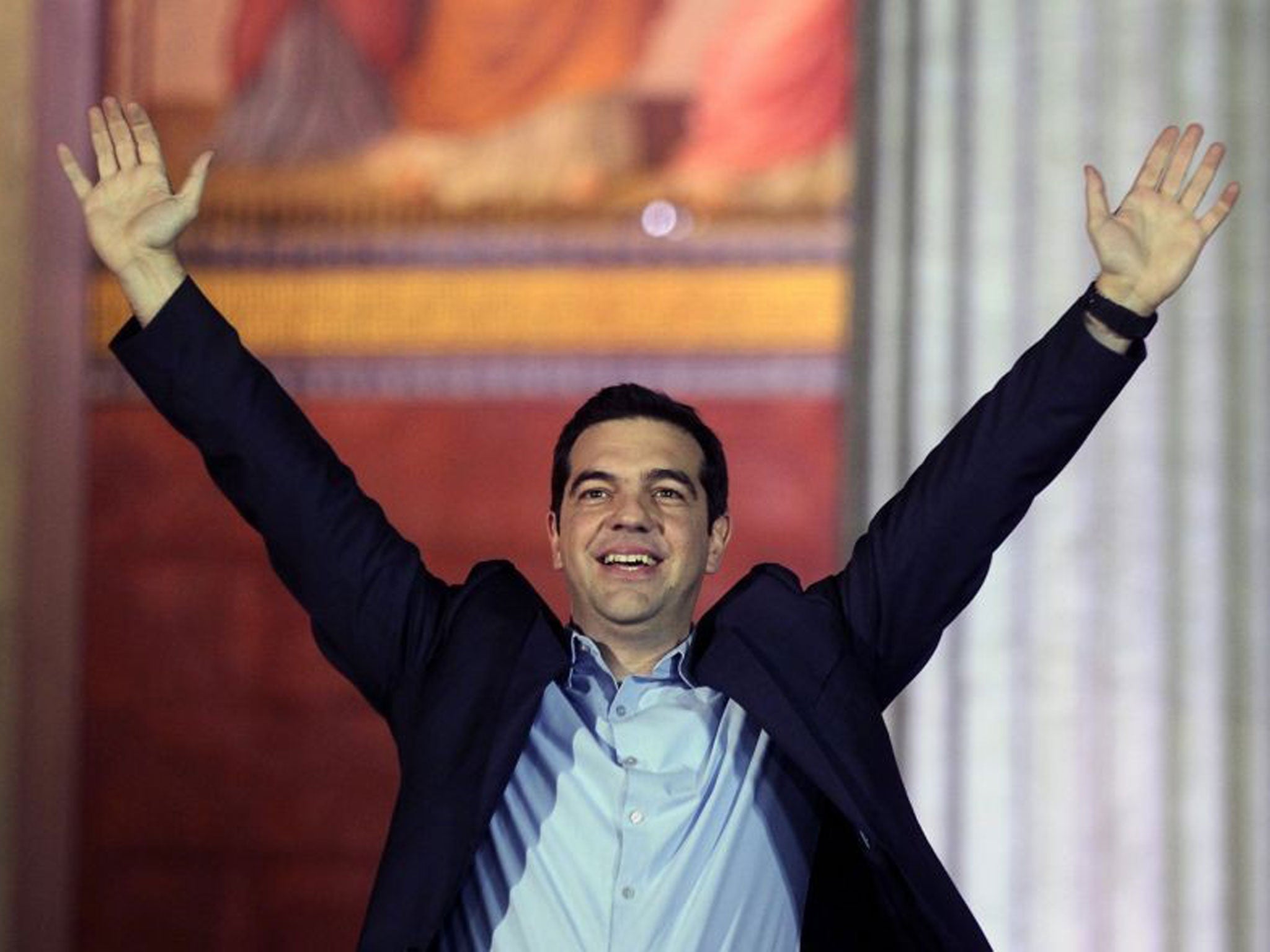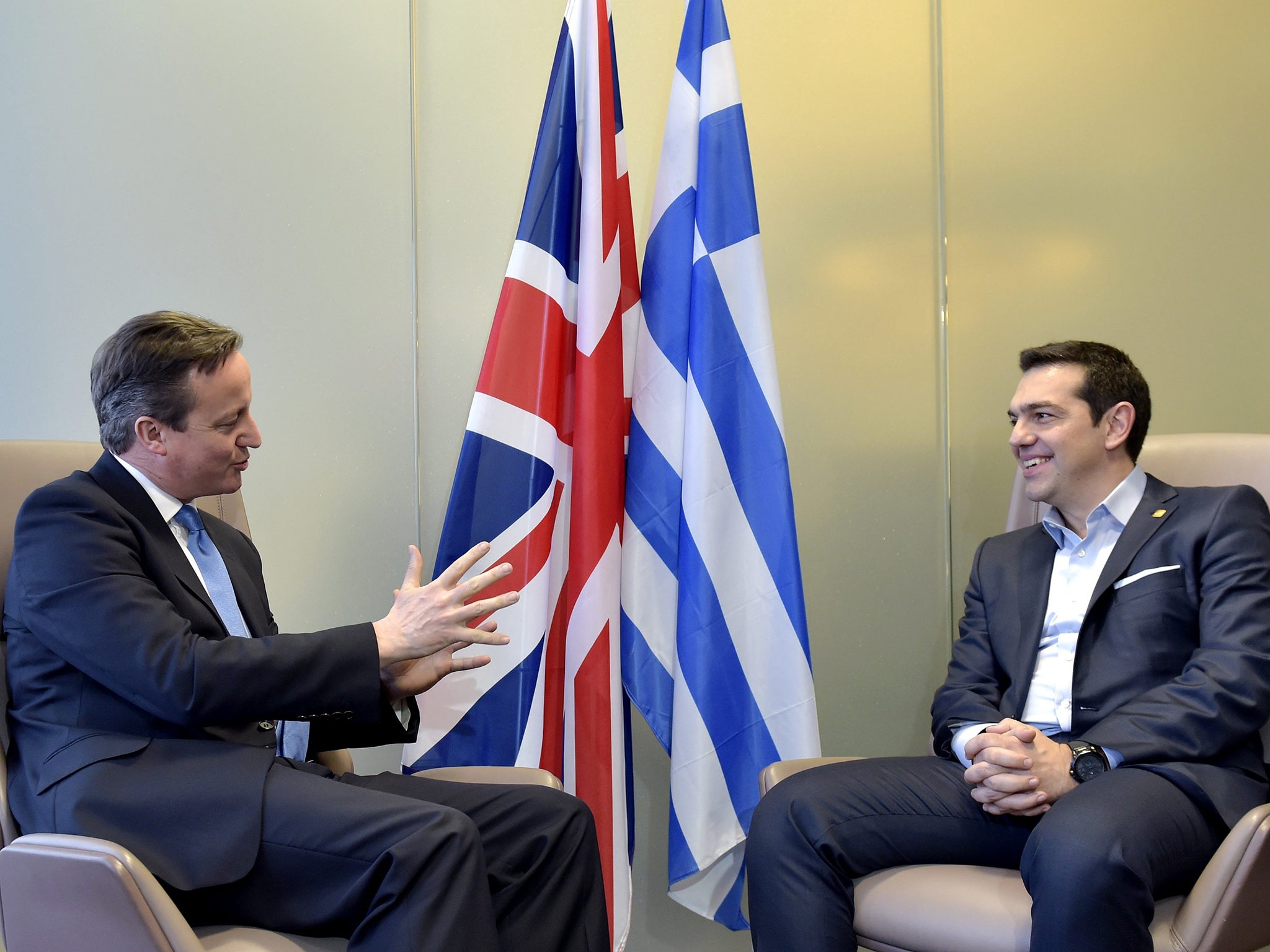Greek bailout: Prime Minister Alexis Tsipras says a 'battle' has been won but 'not the war'
He claimed a small victory for his Syriza party after four-month extension

Your support helps us to tell the story
This election is still a dead heat, according to most polls. In a fight with such wafer-thin margins, we need reporters on the ground talking to the people Trump and Harris are courting. Your support allows us to keep sending journalists to the story.
The Independent is trusted by 27 million Americans from across the entire political spectrum every month. Unlike many other quality news outlets, we choose not to lock you out of our reporting and analysis with paywalls. But quality journalism must still be paid for.
Help us keep bring these critical stories to light. Your support makes all the difference.
The Greek Prime Minister declared victory after reaching a new loan deal with Germany but cautioned that the country has won “a battle, not the war”.
Alexis Tsipras put a positive spin on the four-month extension agreed on its rescue loan package to stave off the imminent threat of it going bankrupt and crashing out of the Eurozone.
“Yesterday we took a decisive step, leaving austerity, the bailouts and the troika behind,” he said in a nationally televised statement.
“We won a battle, not the war. The difficulties, the real difficulties...are ahead of us.”
He defiantly insisted that last night’s agreement delivered on his party’s promise to fight austerity and dispensed with the loathed “troika” of the European Commission, European Central Bank and International Monetary Fund.
But Greece must produce a list of proposed economic reforms by Monday night to be agreed with its creditors by the end of April.
A source at the European Central Bank ruled out restrictions on savers' right to withdraw their deposits, aiming to dismiss expectations that the Greek banking system would crumble.
Mr Tsipras and his Syriza party swept into power last month largely on promises to end.
But Athens was forced to accept a conditional extension of the bailout at the insistence of Eurogroup members, led by Germany, and must still deal with the troika, albeit under the name “the three institutions”.
German politicians claimed victory after the latest deal and Ireland, which had to make its own deep budget cuts under its own EU/IMF bailout programme, said the Eurozone had yielded nothing to Greece.

Michael Noonan , the Irish finance minister, said: “(Syriza’s) political problem is that this a reversal of their election position. There is absolutely nothing on the table that could be considered a concession."
"They're now compromising and compromising quite significantly," he told national broadcaster RTE, but made clear Athens had had little choice. "The biggest threat to Greece was that their banking system would go belly up next Wednesday."
About €1 billion (£750 million) left Greek bank accounts on Friday, a senior banker told Reuters, due to savers' fears that the talks would fail, on top of the €20 billion (£15 billion) withdrawn since Syriza’s victory was predicted in December.

The Greek finance minister, Yanis Varoufakis, has assured residents that the country did not face financial ruin and their savings were safe.
"It is quite clear that the reason why we had a deposit flight was because every day, even before we were elected, Greeks were being told that if we were elected and we stayed in power for more than just a few days the ATMs will cease functioning," he said.
"Today's decision puts an end to this fear, to the scaremongering."
Additional reporting by Reuters
Subscribe to Independent Premium to bookmark this article
Want to bookmark your favourite articles and stories to read or reference later? Start your Independent Premium subscription today.
Join our commenting forum
Join thought-provoking conversations, follow other Independent readers and see their replies
Comments